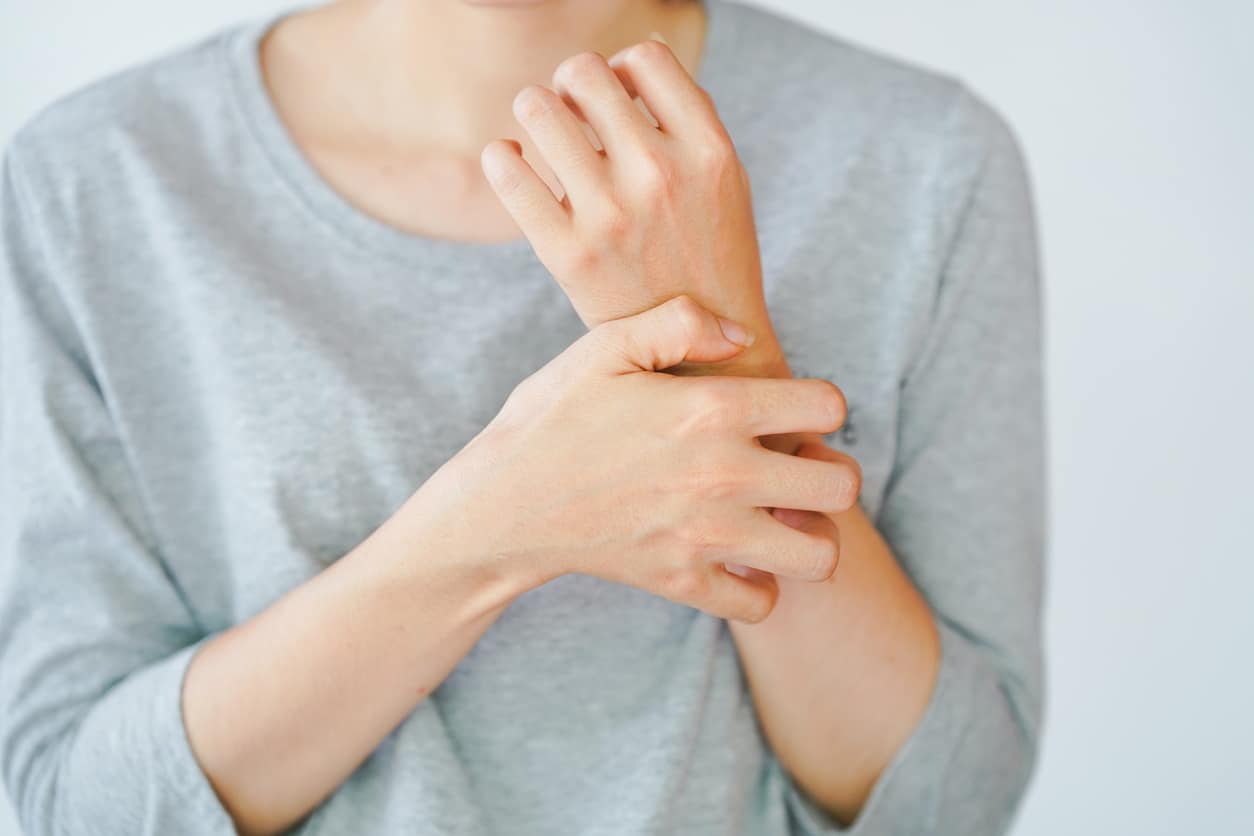Psoriasis is an immune-mediated inflammatory skin condition that causes an itchy rash. Immune-mediated conditions are triggered or inflamed in response to a disruption of regular immune system activity. Allergies are a similar immune system response triggered by contact with allergens.
Let’s look at the connection between allergies and psoriasis and how to identify and treat each condition.
Symptoms and Triggers of Psoriasis

Psoriasis is a chronic rash-inducing condition that can be painful and cause poor sleep and concentration. There is no known cure, and the condition usually goes through a cycle of flaring up for a few weeks or months and then calming. Some symptoms to look out for include:
- Itchy, scaly patches on the skin, commonly found on knees, elbows, scalp, chest and back
- Dry, cracked skin
- Itching
- Burning or soreness
- Rashes varying in color and severity
- Fever and dehydration
Psoriasis can be managed through any combination of light therapy, ointments or creams, medication and home remedies.
Symptoms and Triggers of Allergies
When your immune system encounters an allergen it thinks is harmful, even when it isn’t, it sends out antibodies to attack it. The resulting response is an allergic reaction manifesting with symptoms that may include but are not limited to:
- Sneezing
- Stuffy or runny nose
- Red or swollen eyes
- Swelling
- Anaphylaxis
- Hives
- Rash
Treatment for allergies may include any combination of home remedies, medication, exposure prevention and immunotherapy, the method of introducing small amounts of the allergen into your system to minimize the severity of the reaction.
How Are They Connected?
The root of both allergies and psoriasis is an immune system malfunction. In both cases, the immune system attacks benign cells and substances, causing a negative reaction. Research on their association has found that allergic diseases can significantly increase the risk of developing psoriasis. Furthermore, scratching common allergic reactions which present in the skin, such as hives or rash, can induce a psoriasis flare-up. Because neither condition can be cured, management is the best treatment option available.
To make an appointment with an allergy specialist, contact Ear, Nose & Throat Associates today.